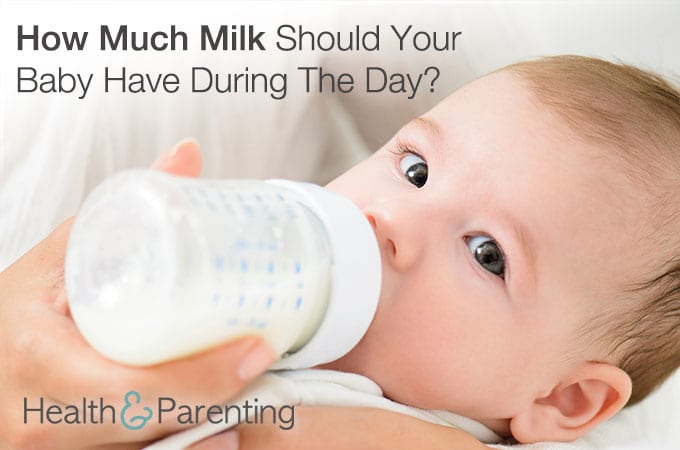Pretty soon, your baby is chomping down on strawberries, steamed carrots and sweet potato mash like there’s no tomorrow. Like many parents, you may be wondering how this will affect his milk intake. Should you offer fewer milk feeds throughout the day or do you continue to prioritize milk feeds? How can you make sure your baby is getting the right amount of both milk and solid food?
When your baby first starts enjoying solid food, he may not really be eating as much as you think. Ever wondered why there’s so much food smushed into the high chair and so much soup in his hair by the end of lunchtime? That’s because mealtimes at this age are more about playing than eating. Your baby is exploring food the only way he knows how – messy play!
Aside from the obvious problem of your food-covered dining room floor, this leaves many parents wondering whether their child has eaten enough. Remember, for the first year of your baby’s life, breast or formula milk is the most important part of your baby’s diet. Around the time of your child’s first birthday, he will start to rely on milk less and will be eating a greater variety of foods.
Breastfed babies
If your baby is breastfed, you should continue to offer feeds throughout the day. In fact, you should make sure your baby has been fed recently at each mealtime because this will mean he’s happy to play with his food for longer. It takes babies a while to understand that solid food can fill their tummies, so it’s best to introduce solid food to a baby who isn’t in the midst of a hangry rage.
As your baby consumes more solid food, you will probably notice that he asks for less frequent or shorter milk feeds throughout the day. Follow your baby’s lead on this one, remember your baby is the best judge of whether he has had too much or too little to eat.
Formula fed babies
Formula fed babies drink, on average, 900ml of formula milk a day at six months old. By the time your baby is eating a good mix of solid foods, his milk intake will probably decrease to around 600ml a day. These numbers are averages so don’t worry too much if your baby is consuming more or less than this.
Regardless of whether your baby is breast or formula fed, milk should still make up a decent chunk of his daily intake of calories. Breast and formula milk are specially formulated to meet your baby’s needs. Formula and breast milk are rich in nutrients and an essential part of your baby’s diet for at least the first year of his life.
Written by Fiona (@Fiona_Peacock), mother, writer and lover of all things baby related.
This information is not intended to replace the advice of a trained medical doctor. Health & Parenting Ltd disclaims any liability for the decisions you make based on this information, which is provided to you on a general information basis only and not as a substitute for personalized medical advice. All contents copyright © Health & Parenting Ltd 2016. All rights reserved.










